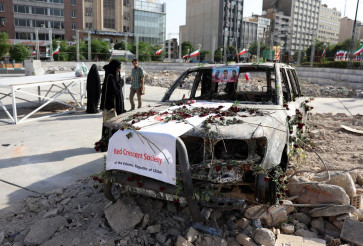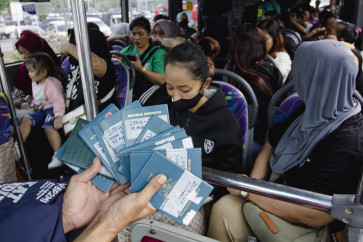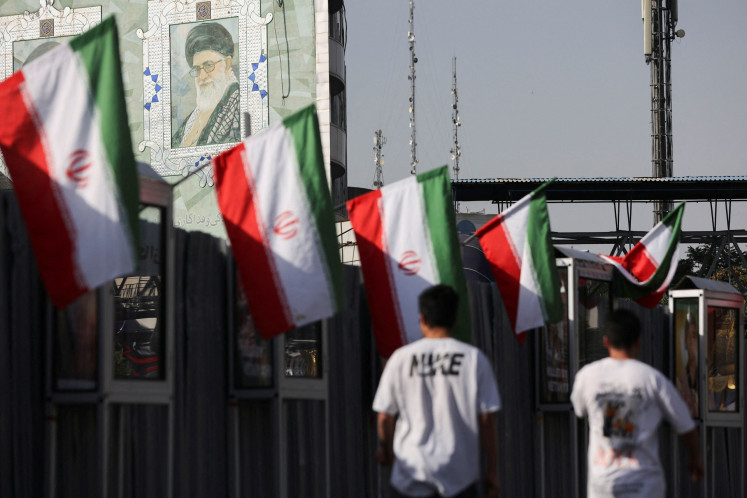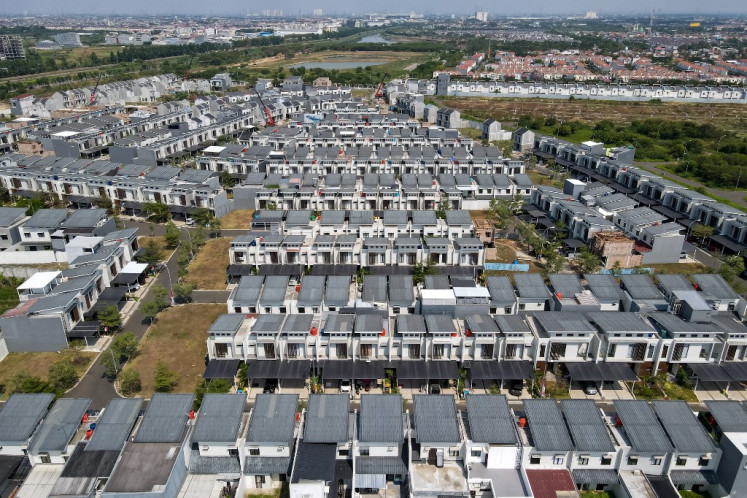Popular Reads
Top Results
Can't find what you're looking for?
View all search resultsPopular Reads
Top Results
Can't find what you're looking for?
View all search resultsTwo years on, Athletes Village still Jakarta’s go-to isolation center
As one of the main facilities for treating COVID-19 in the capital city, the Athletes Village apartment compound has witnessed the ups and downs of the pandemic over the last two years.
Change text size
Gift Premium Articles
to Anyone
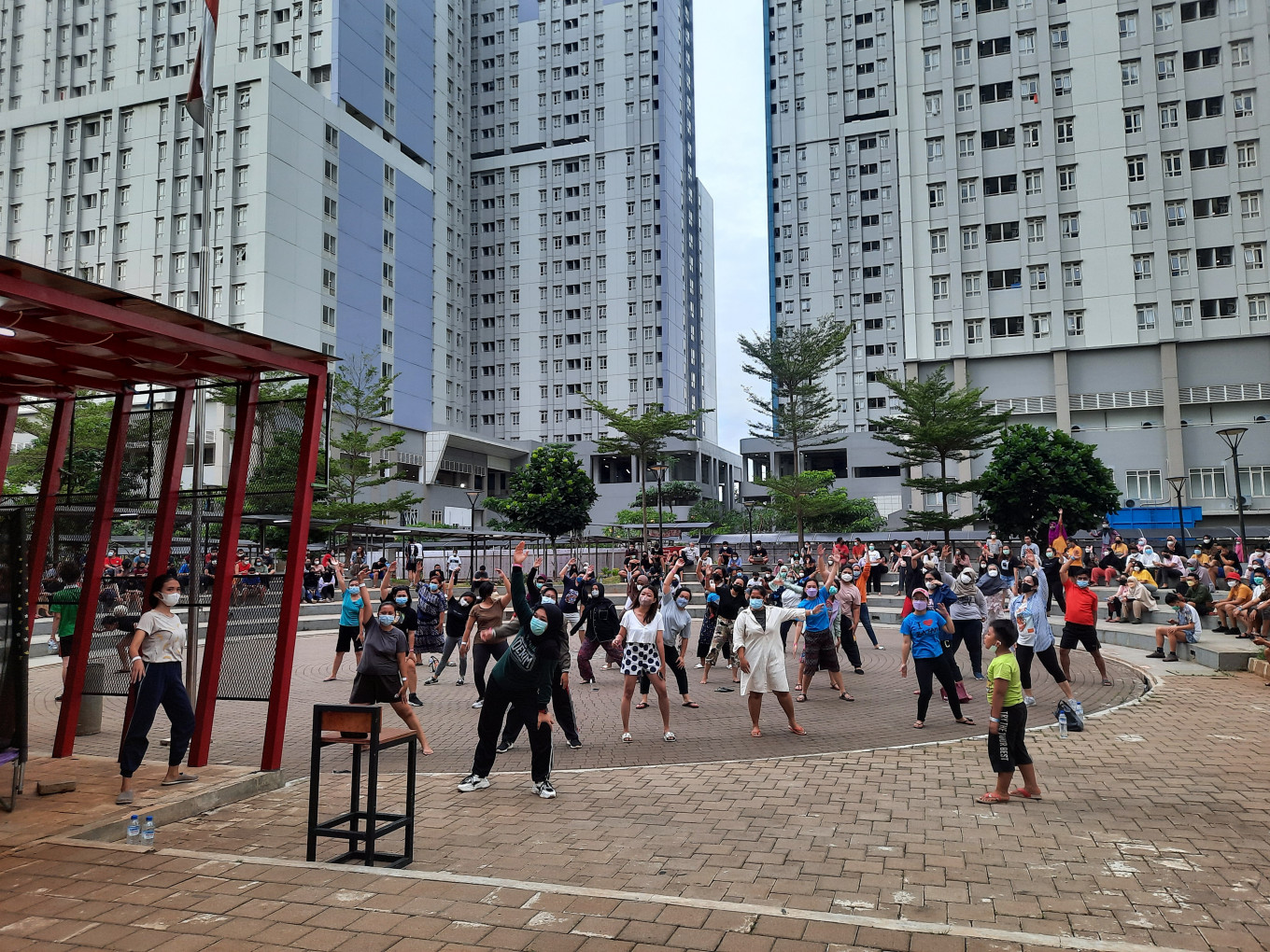
B
efore COVID-19 swept into Indonesia nearly two years ago, few would have imagined that the 10-hectare Athletes Village compound in Kemayoran, Central Jakarta, would become one of the city’s the most prominent healthcare facilities.
After housing athletes for the 2018 Asian Games and Asian Para Games, the 10 apartment towers remained mostly empty, waiting for the next big event to attract sports professionals from around the world.
With a capacity exceeding the International Olympic Committee’s standard of housing for 14,000 athletes, the facility was expected to bolster Indonesia’s efforts to host the Olympic Games.
Instead, the towers have borne witness to the country’s massive COVID-19 outbreak, from the initial wave of infections in 2020, to the deadly second wave fueled by the Delta variant, right up to the ongoing Omicron wave.
After President Joko “Jokowi” Widodo announced the country’s first two confirmed COVID-19 cases on March 2, 2020, health workers began preparing the 7,000 empty units to house patients.
Less than three weeks later, by the time Finance Minister Sri Mulyani Indrawati had moved to reallocate Rp 62.3 trillion (US$3.9 billion) in state funds toward the COVID-19 response, including to refit the Athletes Village as a medical center, Indonesia had reported 369 cases and 32 deaths.
Nowadays, as the government cautiously acknowledges the relative mildness of the Omicron strain of the coronavirus, the emergency hospital is mostly being used as an isolation center for patients with asymptomatic or mild cases, as well as for people unable to quarantine at home.
Read also: Jakarta sees rise in COVID-19 hospitalizations
Repeat customer
Nienu Mitrania, 32, had few options but to be admitted to the Athletes Village for a second time. “I live alone, and the local RT [neighborhood unit] in South Jakarta would not allow me to self-isolate at home,” Nienu told The Jakarta Post recently.
Nienu started her second round of isolation at the Athletes Village on Feb. 15, a day after hosting a visiting friend who later tested positive for COVID-19.
The advertising freelancer had isolated in the facility in July, as the country was grappling with the second wave of infections.
Upon her return, she noted that although the Athlete’s Village was less crowded than last year, a long queue had formed for new intakes.
“I arrived at around 1 p.m. and only got a bed at 4.30 p.m.,” Nienu said.
She said there was not much to do besides having routine meals, taking medication and sleeping, although she noted that patients were free to roam around the compound to get a bit of exercise.
“But I’ve chosen to rest in my room for now. I'm taking time off of work as well for total bed rest,” she said, adding that the level of patient care was similar to the last time she was at the facility.
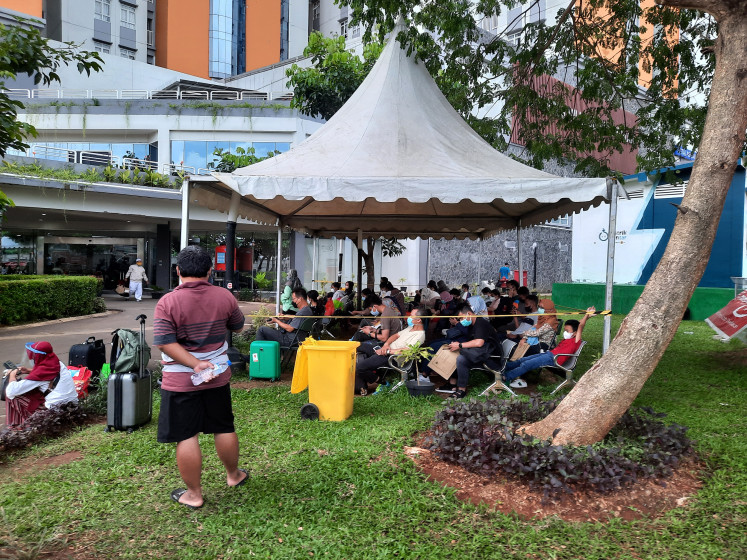
Communal living
Another patient, Ani Nurhani, 24, had been at home taking advantage of the free telehealth services provided by the Health Ministry for self-isolating patients but eventually chose to check herself into the Athletes Village so that she would not feel lonely.
“I didn’t think I would be able to self-isolate alone, so I contacted the nearby community health center [Puskesmas] and asked to be referred to the Athletes Village. By the afternoon of Feb. 17, I had arrived here with the other patients,” the private sector employee told the Post.
Although she had received a booster shot, Ani suspected she had caught the virus from her roommate, who had chosen to self-isolate away from their boarding house in South Jakarta. She said she was glad to be recovering at the Athletes Village.
“It’s been pretty helpful. I’m guaranteed to have the correct medicine three times a day. Patients are also always reminded to have their meals,” she said.
Rahmat Tri Atmojo, a 23-year-old civil servant, also appreciated being an in-patient at the facility.
He was referred to the emergency hospital by his landlady, the local Puskesmas and his institution’s COVID-19 task force after testing positive for COVID-19 in early February.
“I don’t really ask for much, but this is better [than self-isolating at home] because I’m being taken care of,” said Rahmat, who lives alone in Jakarta, away from his family in Boyolali, Central Java.
He has since been discharged from the quarantine facility.
Read also: Jakarta’s emergency hospital for COVID-19 open for business
Ebb and flow
As one of the city’s main COVID-19 treatment facilities, the Athletes Village has been near full capacity multiple times and recorded a 92 percent bed occupancy rate (BOR) in September 2020.
Occupancy fell to 15 percent in May 2021 along with the end of the first wave of infections, but by the end of June, the rate shot up again to 91 percent amid the Delta wave. Jokowi said at that time that the healthcare system was nearing collapse.
The occupancy rate began rising again in January of this year, as the Omicron wave overtook the country, although a larger portion of the patients were asymptomatic.
As of Monday, the Athletes Village was treating 2,956 COVID-19 patients, who occupied about a third of the available beds.
Nearly 3,000 medical professionals work at the facility around the clock, including 69 specialist doctors, 377 general practitioners and 1,592 nurses.
Recently, a nurse who worked there died of a lung infection, even after recovering from COVID-19, kompas.com reported.


